For the past eight years, the faculty of Villanova’s English Department has created summer reading recommendations. The department has kindly allowed Falvey to reprint the list on the Library’s blog and share it with our patrons.
Once you’ve explored this one, you can click on the link at the end to see the previous lists on the English Department’s web page.
Alan Drew, MFA, Associate Professor of English
Since we’ve been mostly confined to our homes this last year, I’m in need of escape to start the summer. I’ve surfed only a little, but I grew up body surfing in Southern California and have had a long running fantasy to travel the world, riding waves wherever you can catch them. William Finnegan lived my fantasy, wrote a memoir about it, and won a Pulitzer for that memoir. (I’m very jealous of him.) I’ll live vicariously through him and his book, at least for a few days.

Joe Drury, Associate Professor of English
I’m currently about halfway through and very much enjoying Lost Children Archive by Valeria Luiselli, a kind of anti-Kerouac road trip novel about a journalist who sets off across the US with her husband and two children. Her husband wants to explore the history of the Apache, while she plans to search for two immigrant children who have gone missing at the southern border. Once I’m done with that, I will be picking up Mr. Fortune’s Maggot by Sylvia Townsend Warner, a satirical novel about an English missionary on a remote volcanic island. The maggot in question is not a bug but “a whimsical or perverse fancy.”

Travis Foster, Associate Professor of English
Stone Butch Blues by Leslie Feinberg. A stunning coming-of-age novel primarily about the experiences of queer people in the US from the 1940s through the 1970s. I read this almost a year ago and still think about the protagonist, Jess Goldberg, several times per week.

The Way of Thorn and Thunder by Daniel Heath Justice. An epic fantasy adventure that reimagines North America in the 18th and 19th centuries from the perspective of Cherokee people and history. It is a truly amazing novel with world building on a vast scale; multiple different cultures, all fully realized; unforgettable characters whose sexualities and genders far surpass any simple binaries; and a plot with the very highest of stakes. This one kept me up late into the night.
Daisy Fried, Adjunct Faculty Member
Derrek Hines’ contemporary retelling of Gilgamesh, the world’s first book. In translation, Michel Houellebecq‘s controversial novel about French politics and ethnic/religious divisions, Submission.

Karen Graziano, Adjunct Faculty Member
This summer, I plan to revisit my legal roots: environmental law and policy. I’ve been exploring local parks and open spaces throughout the pandemic and thoroughly enjoying my frequent walks. You can expect to find me at one of my local parks this summer rereading Rachel Carson’s classic Silent Spring that helped galvanize the environmental legal movement. Next, I’ll be carried away to life on a Nebraska farm looking at the connections between agricultural and environmental policy, community and family, and business in Ted Genoways‘ This Blessed Earth: A Year in the Life of an American Family Farm. I’m looking forward to reading a book that plants “seeds of hope as the next generation prepares to inherit the family land and all of the joys and challenges that come with it,” as Willie Nelson, president of Farm Aid, describes it. I want to become more aware of and appreciate what Tom Colicchio, chief and cofounder of Food Policy Action describes as “farming, family, and good” converging to show readers “what it takes to work on this blessed earth.”

Heather Hicks, Chair and Professor of English
As I am always dipping into new fiction related to my scholarly interest in the apocalyptic tradition, I recently read Rumaan Alam’s 2020 novel Leave the World Behind. This is a page-turner set in the Hamptons, which effectively intermingles class and racial politics with a looming sense of mystery and dread.

Jill Karn, PhD, Adjunct Faculty Member
I plan to read War and Peace by Leo Tolstoy. I know, I know, it’s so incredibly long; but I like the idea of having a massive book to accompany me wherever I go this summer. It feels like a huge commitment to read this novel, and, truly, it’s a book I’ve always been meaning to read. Already, I’ve dipped into it and have been pleasantly surprised by its accessibility and richness. The characters—if you can keep track of who’s who—are fascinating and real. This book will be my companion on the train, on visits to family, on the beach. And if I want to hide behind it sometimes, that’s what one needs in the summer months too.

Yumi Lee, Assistant Professor of English
This summer, I’ll be reading The Essential June Jordan, just published this month. June Jordan is one of the great political poets of our time, and her work touches on so many of the issues that have been at the front of my mind this year: the violence of policing, the intersections of racism and sexism, how to be and act in solidarity with oppressed peoples the world over. Reading her work, I’m reminded that the struggles we’re engaged in today aren’t new by any means—a fact that’s depressing and enraging, and yet somehow oddly comforting to me at the same time. Jordan is at once a brilliant political thinker, an unswerving moral guide, and a genius of poetic language. (She also has amazing comic timing: as you read, you’ll be moved to tears and you’ll laugh out loud in the space of the same poem.) If you’ve never read her before, I highly recommend picking up this new collection.

Crystal Lucky, PhD, Associate Professor of English
This summer, I am planning to read the debut novels of two immigrant writers, one old(er) and one brand new. The first, Brown Girl, Brownstones (1959), was the debut novel of the late Paule Marshall, novelist, short story writer, memoirist, and MacArthur “Genius Award” winner. The coming-of-age novel reveals the inner workings of a close-knit community of immigrants from Barbados and their complex relationship with World War II era American society. The second, Of Women and Salt (2021) by Gabriela Garcia, tells a transgenerational story of migration, addiction, betrayal, and perseverance. I received the novel as a Mother’s Day gift and discovered it comes highly recommended by our colleague, Dr. Yumi Lee.
I also want to recommend Cicely Tyson’s Just As I Am: A Memoir (2020), which I just finished reading. Released just days before the extraordinary actress’ passing at age 96, the autobiography is not only an engaging recounting of Tyson’s life, career, and long relationship with jazz trumpeter Miles Davis. It deftly guides readers through the 20th and early 21st century—the exciting days of Harlem in the 1920s, the Depression and Second World War, the Civil Rights Movement, the Age of Obama—right up to our current Pandemic moment. I loved every page!

Adrienne Perry, PhD, Assistant Professor of English
This summer I’m looking forward to setting up the hammock and spending many days reading a few of the books that friends and former students have given to me. The first is N.K. Jemisin’s The Broken Earth trilogy. Each book in the series won a Hugo Award. (By the way, Jemisin won the Hugo three years in a row for these books!) I enjoy the immersive experience of reading science fiction and am eager to get to know about the people and land of Stillness. On the short story front, I’m looking forward to reading Kingdom’s End, a Penguin Modern Classics edition of Saadat Hasan Manto’s short stories, translated here from the Urdu by Khalid Hasan. Manto was a prolific writer who (apparently) revised little, and yet is considered “one of Urdu’s great stylists.”

Megan Quigley, Associate Professor of English
Ulysses by James Joyce!
As I prepare to teach Ulysses on its 100th birthday next spring, I’m thinking about why this book matters still, from humanist, theoretical, religious and political perspectives. Some ideas though, maybe first you should read, “The Dead,” a short story from Dubliners, to get your Joyce feet wet. Then try out A Portrait of the Artist as a Young Man, if you are in the mood for a more Romantic story of young Stephen. But then, tackle the big blue book! Some suggestions: join an online reading group! It’s more enjoyable with friends. Check out Robert Barry’s Ulysses Seen or the Joyce Project for a graphic novel or multimedia approach. Is it a book about a divided nation? About marriage? About the body? About the impossibility of writing a novel? Have fun….

Evan Radcliffe, Associate Professor of English
Alison Bechdel has just published a new book, The Secret to Superhuman Strength. It’s a graphic memoir like her previous books Fun Home and Are You My Mother, but in this book you get not only Bechdel herself but also Romantic or Transcendentalist writers like Wordsworth, Coleridge, Emerson, and Margaret Fuller, who explored (as Bechdel puts it) “Self! Nature! Spirit!” All that, and (in contrast to her earlier work, which is black-and-white with a single-color wash) colors too! I’ll be reading it, and I also recommend a book I just finished listening to, Anna Burns’s 2018 novel Milkman, as read by Brid Brennan. A lot depends on the distinctive language of the central character, who is also the narrator of the story; Brennan gives her a compelling voice that brings out her particular Irish tones and rhythms, and I loved listening to it.

Lara Rutherford-Morrison, Adjunct Faculty Member
My rec for summer reading is Madeline Miller’s 2018 novel, Circe. Circe is a minor deity in Greek mythology, who is probably most famous for her role in Homer’s Odyssey, in which she turns a bunch of sailors into pigs. Miller’s version, told from Circe’s point of view, recounts Circe’s life from her childhood among the gods to her banishment on a remote island. It’s a fun and extremely absorbing book; I loved it. If you’re a fan of Greek mythology, you’ll enjoy cameos from a variety of Greek gods and monsters and Miller’s reimagining of a number of famous myths.

Lisa Sewell, PhD, Professor of English
I am starting off the summer with Migrations, by Charlotte McConaghy. The novel is set in the near future, when global warming has wiped out the food and habitat for most animals and a majority are endangered or already extinct. It tells the story of Franny Stone, who travels to Greenland to follow the last Arctic terns in the world on what may be their final migration to Antarctica. Franny talks her way onto a fishing boat and the plot moves between her experiences with the motley crew on board the ship and her memories of her troubled past, which includes a passionate romance, missing parents and a violent crime. The New York Times describes it as a reimagining of Moby Dick. It’s beautifully written (though she’s no Melville), an ode to a disappearing world, but it’s also a page-turner, so a good, though depressing, summer read. Other books on my list include Brenda Hillman’s book of poetry, Seasonal Works with Letters on Fire, the final book in her tetralogy on earth, air, water and fire and Cathy Park Hong’s essay collection/memoir, Minor Feelings, which is apparently being made into a TV show.

Lauren Shohet, Professor of English
First, my senior seminar students chose for our class Margaret Atwood’s novel Hagseed, which adapts Shakespeare’s Tempest, setting it in a prison. It’s an engaging read on its own terms, and offers some interesting ways to think about the Tempest as well. Second, I plan to read Maggie O’Farrell‘s Hamnet, a novel about the death of the historical Shakespeare’s son. Third, I recommend Nina MacLaughlin’s Wake, Siren: Ovid Resung, which offers a range of feminist voices retelling the tales from Ovid’s Metamorphosis (many of which concern sexual violence).

Tsering Wangmo, PhD, Assistant Professor of English
I’ve been thinking about form a lot lately, and about Carmen Maria Machado‘s work. A while back responding to a question about genre and her use of form in her stories, Machado said something about how she thinks of the world as a “liminal fantasy”, and how she’s interested in messing with genre. I’m returning to Her Body and Other Parties, for form and for the stories she tells. Her recent memoir In the Dream House was among books removed from school reading lists by Leander Independent School District in Leander, Texas, partly because of parents who opposed including LGBTQ+ books on the reading list. In the Dream House is on my reading list.
Last summer I said I was going to read An Unnecessary Woman by Rabih Alameddine, and I did not read it. The novel is a portrait of a reclusive translator in Beirut who, once a year, translates a favorite volume into Arabic but they’re only for herself. I hope to get to it this summer.

Read the English faculty’s prior summer reading lists.
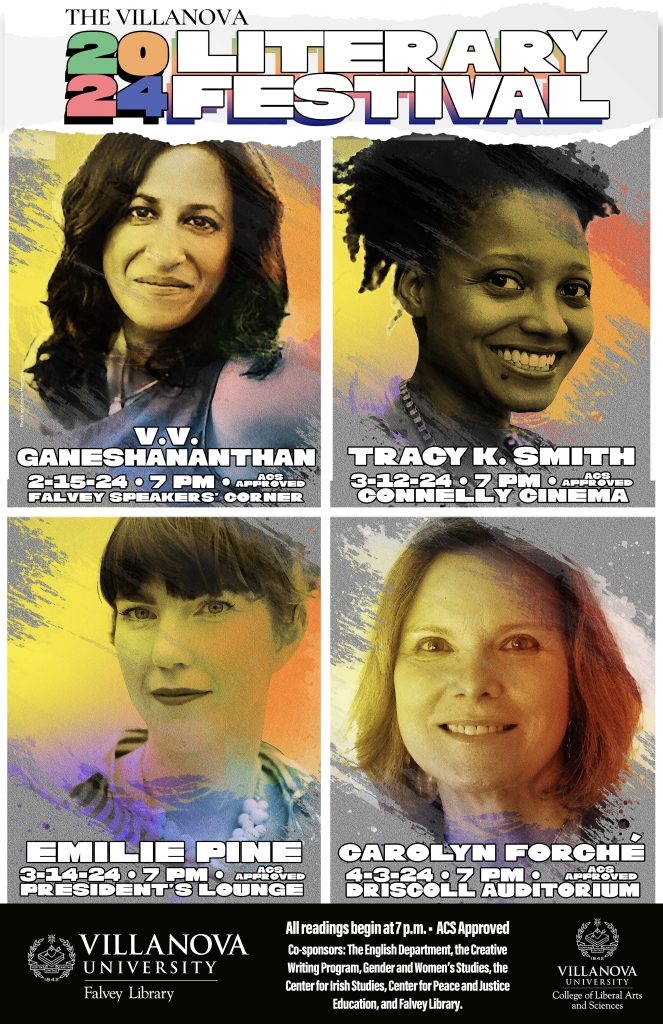

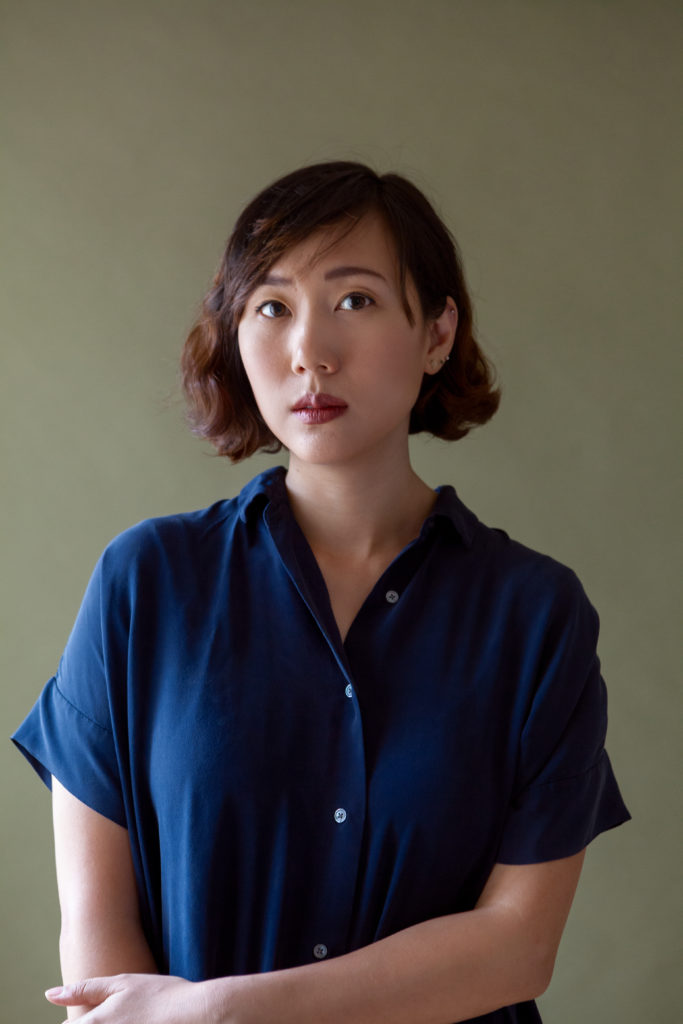
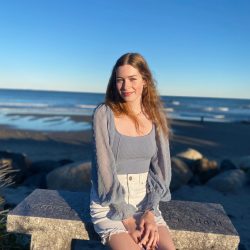 Julia Wagner ‘26 CLAS is a Communication major from New Hampshire (Go Patriots!). She works as a Communication & Marketing Assistant at Falvey Library.
Julia Wagner ‘26 CLAS is a Communication major from New Hampshire (Go Patriots!). She works as a Communication & Marketing Assistant at Falvey Library.



 T.S. Eliot’s “The Waste Land”
T.S. Eliot’s “The Waste Land”






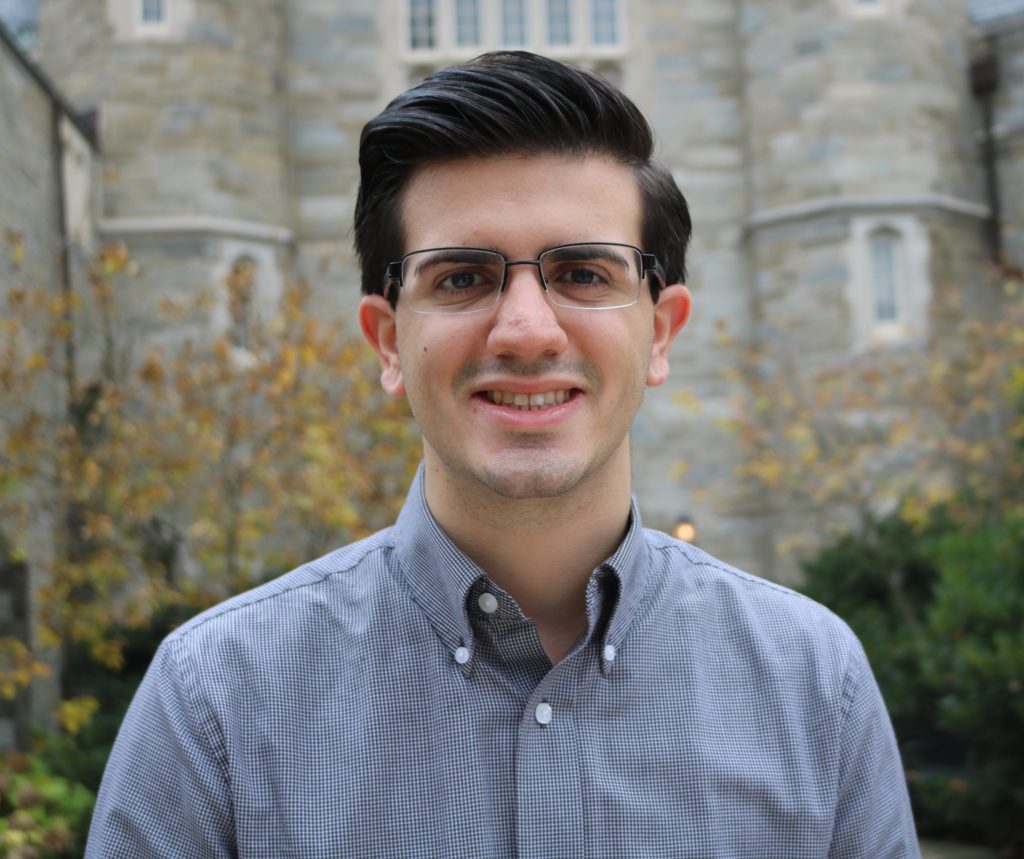
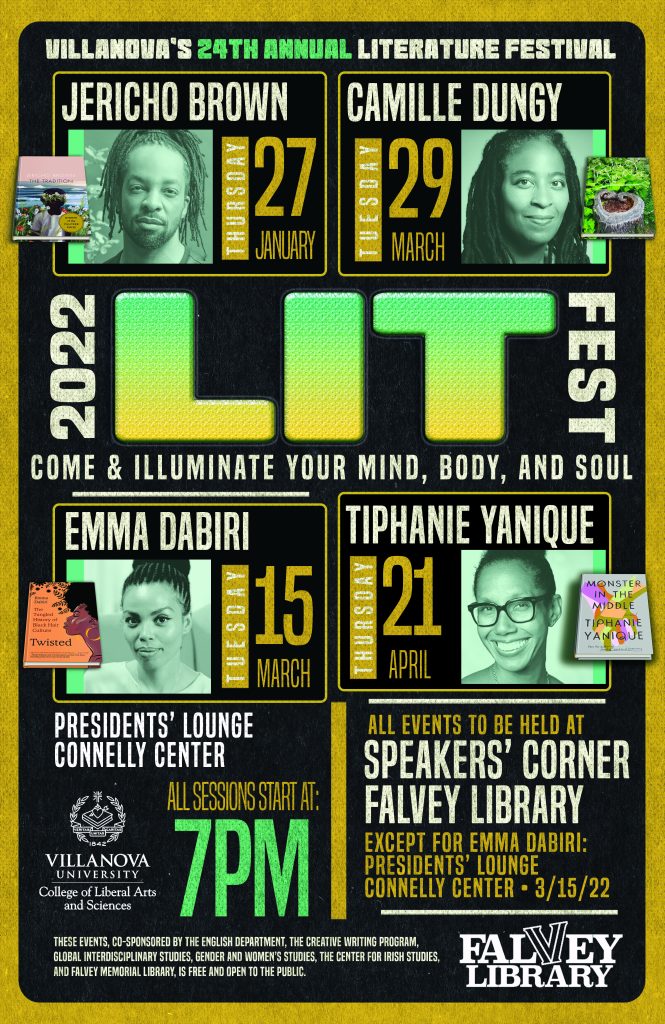
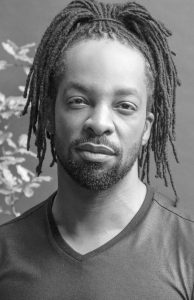 JERICHO BROWN
JERICHO BROWN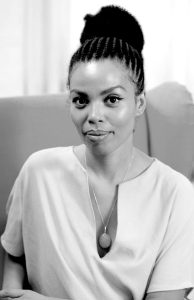 EMMA DABIRI
EMMA DABIRI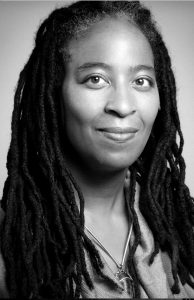 CAMILLE DUNGY
CAMILLE DUNGY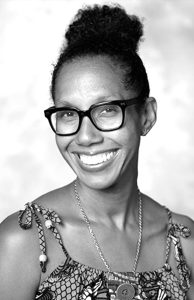 TIPHANIE YANIQUE
TIPHANIE YANIQUE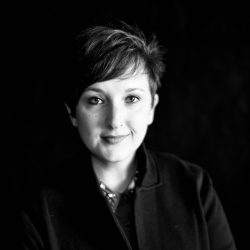 Kallie Stahl ’17 MA is Communication and Marketing Specialist at Falvey Memorial Library.
Kallie Stahl ’17 MA is Communication and Marketing Specialist at Falvey Memorial Library.














